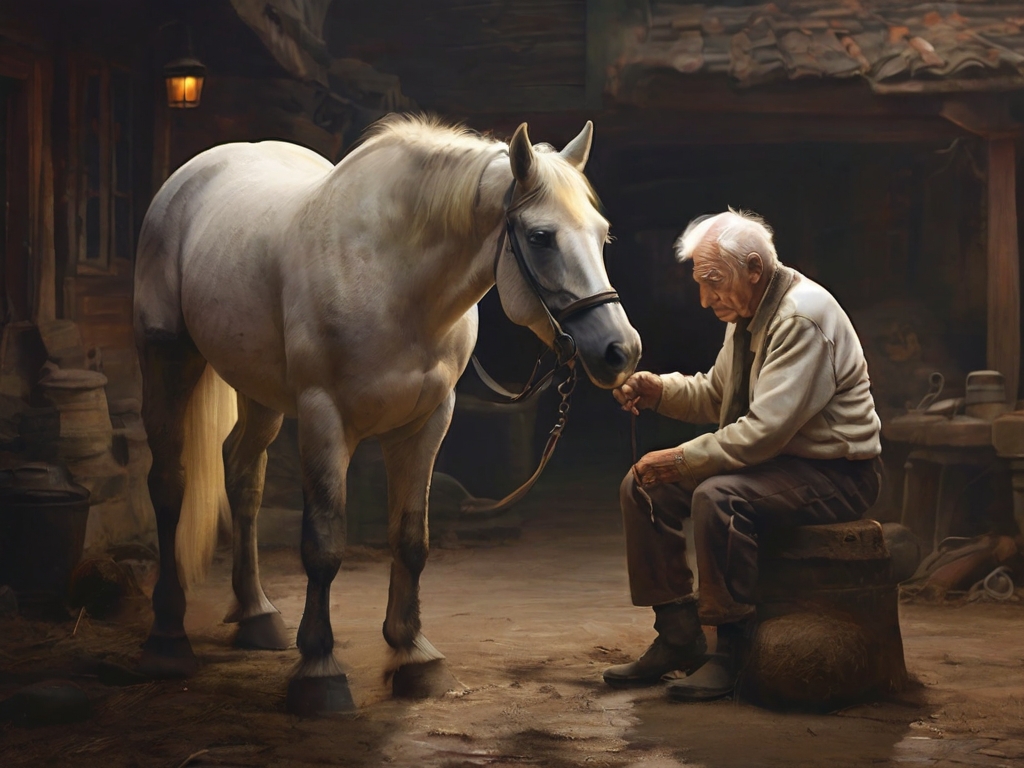Once, in the kingdom, there lived a poor old man known for selling forest wood. Despite his poverty, the old man gained fame for his peculiar words and his beautiful white horse. This horse, unlike any other in the state, caught the envy of even the king.
Many wealthy individuals, including the king, attempted to buy the horse, offering a hefty price in gold coins. However, the old man, unmoved by temptation, declared that the horse was a family member and not for sale.
One day, to the old man’s dismay, he discovered that the horse was missing. The news spread, and people mocked him for his misfortune. They believed the horse had been stolen, as they doubted the old man’s ability to protect such a valuable asset.
Ignoring the mockery, the old man calmly stated, “Whatever is, everything is fine. The truth is, the horse is not in the stable; the rest will see what happens.” A month later, to everyone’s surprise, the horse returned, accompanied by a dozen more horses of the same breed.
People marveled at the unexpected turn of events and praised the old man for his wisdom. They suggested he become a horse trader, but the old man, maintaining his calm demeanor, reiterated, “Whatever is, everything is fine. The rest will see what happens next.”
However, tragedy struck when the old man’s elder son fell from one of the wild horses, breaking his leg. Despite the sympathy from others, the old man remained unfazed. He once again expressed, “Whatever is, everything is fine. The rest will see what happens next.”
As fate unfolded, the kingdom faced an attack from the king’s enemies, and the youth were forcibly taken into the army. The old man’s son, with a broken leg, was spared from this fate. People, grieving for their own losses, turned to the old man, acknowledging the blessing in disguise.
Curious about the old man’s resilience, they asked him how he remained unchanged amidst happiness and sorrow. The old man shared his wisdom, emphasizing the importance of accepting life’s uncertainties without labeling them as good or bad.
He urged them to focus on their actions, thoughts, and the present moment, emphasizing that life’s ups and downs are like small parts of a larger story. Concluding, he advised against drawing conclusions from isolated incidents and encouraged them to find inner happiness by concentrating on important aspects of their lives.



